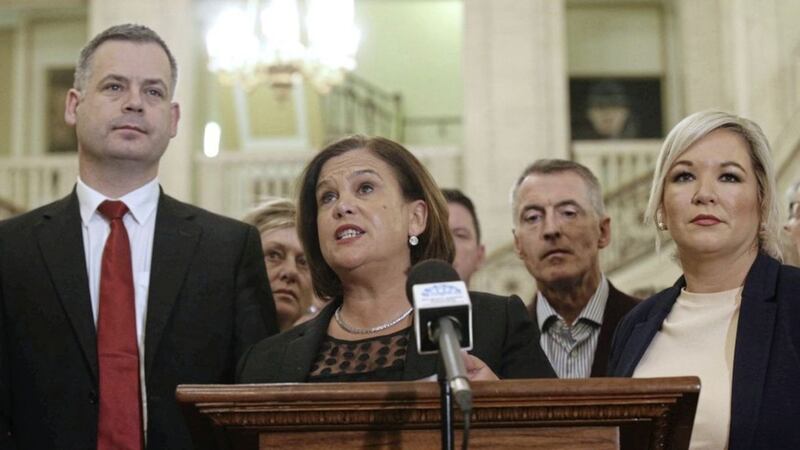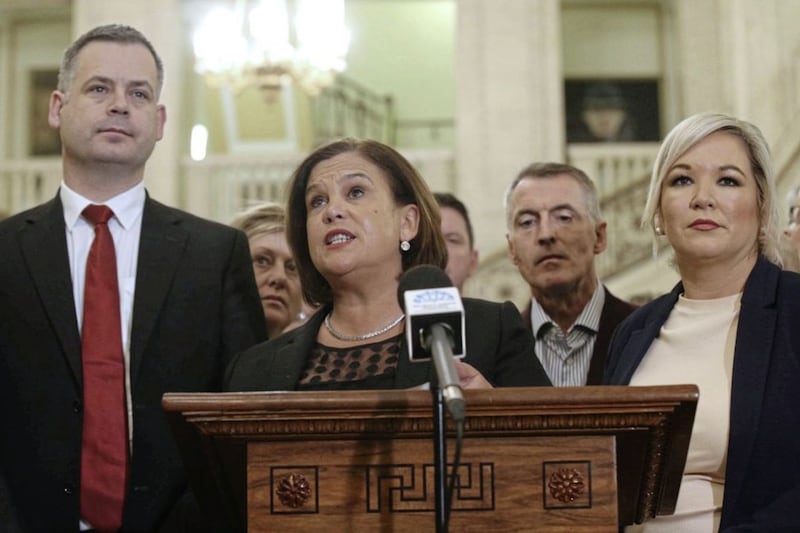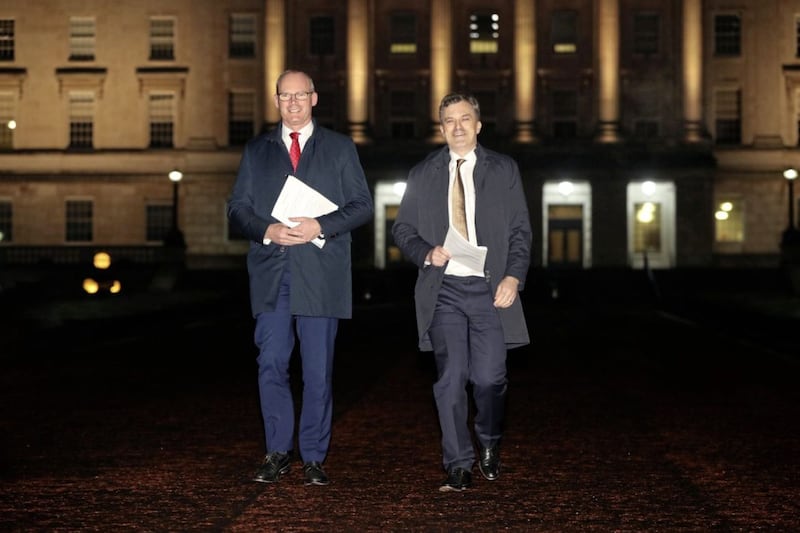THE Stormont institutions are set to be restored over the coming days with both the DUP and Sinn Féin endorsing the agreement tabled by the two governments.
Assembly speaker Robin Newton last night wrote to the whips from each of the main parties outlining details of how the executive will be restored.
MLAs could sit as early as today though last night it appeared more likely that devolution would be officially restored on Monday, a matter of hours before legislation giving civil servants decision-making powers expires.
The DUP is expected to nominate Arlene Foster as first minister, while Sinn Féin confirmed to the Irish News that Michelle O'Neill will be its nominee for deputy first minster.
Sinn Féin had previously stated that it would not re-enter the executive if the DUP leader was first minister, however, that condition fell away soon after the institutions collapsed.
The New Decade New Approach deal was unveiled by the two governments on Thursday night, on the third anniversary of Martin McGuinness's resignation as deputy first minister.
Secretary of State Julian Smith last night welcomed the parties' support, saying a devolved government "can now start delivering the reforms needed in our public services".
"After three years, it’s time to get back to work – for the people of Northern Ireland," he said.
Failure by the two main parties to endorse the deal would have triggered fresh assembly elections.
Mrs Foster was quick to back the agreement, widely regarded as a good deal for unionism.
But Sinn Féin waited until the party's ard chomhairle met yesterday in Belfast before signing up to the deal.
Party president Mary Lou McDonald said the basis for restoring the institutions now existed.
"There's no doubt there are serious challenges ahead - the impact of Brexit, austerity and other pressing issues," she said.
"But the biggest and most significant challenge will be ensuring we have genuine power sharing build on equality, respect and integrity."
The Dublin TD said her party was "committed" to Irish unity and to ensure people across the island enjoy the same rights.
However, pointing to an area of potential contention, Ms McDonald said she rejected in the "strongest possible terms" commitments given to the DUP by the British government, which are thought to include a pledge to extend the number of days for flying the Union flag from public buildings.
"These are not part of this agreement – indeed, in our view they fly in the face of the Good Friday Agreement and they represent bad faith and it is disappointing that the Irish government acquiesced to these measures," she said.
But she said she believed power-sharing can work.
In her statement accepting the terms of the deal, Mrs Foster said the past three years have been "bad for Northern Ireland politics".
"Leaders on all sides need to work towards the common ground and focus on restoring devolution so we can have ministers appointed and focus on key issues such as waiting lists and mental health," she said.
"The only way forward is one which is fair and balanced."
The SDLP also endorsed the deal after a meeting of its MPs and MLAs yesterday evening.
Party leader Colum Eastwood said it was time to deliver for the public.
"We have had big commitments from the two governments and other parties to ensure that the things that we are concerned about actually get done in this executive," he said.
"That's why we have taken the decision, as a party, to go into government to make sure that we can deliver for the people we are concerned about."
He said his party would enter the executive "probably sceptically" but endeavour to deliver for the public.
He was non-committal on who might be his party's nomination for its one ministerial portfolio.








